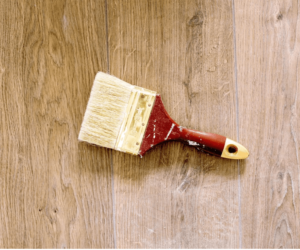
Your driveway is the first impression your home makes on visitors, and a cracked, faded, or uneven driveway can detract from your property’s curb appeal. If you’re looking for a budget-friendly and environmentally conscious way to transform your driveway, asphalt millings may be the solution you need.
Asphalt millings are a recycled material made from ground-up asphalt that has been removed from old driveways, parking lots, and roadways. When laid properly, they create a durable and attractive surface that can last for many years with minimal maintenance. Plus, using recycled materials helps reduce waste and conserves natural resources, making it a smart choice for environmentally conscious homeowners. In this article, we’ll explore the benefits of using asphalt millings for your driveway and provide some tips on how to properly install and maintain this material.
Benefits of using Asphalt Millings for Your Driveway
Cost-Effective Option
Asphalt millings are a budget-friendly option for driveway construction or repair. They are typically much cheaper than new asphalt or concrete, and using recycled materials also reduces the cost of waste disposal fees. The low cost of asphalt milling makes them an excellent option for homeowners who want to improve the appearance of their driveway without breaking the bank.
Eco-Friendly Solution
Asphalt millings are an eco-friendly solution for driveway construction or repair. They are made from recycled asphalt, which reduces the amount of waste that goes into landfills. Using recycled materials also conserves natural resources and reduces the need for virgin materials. Additionally, the use of asphalt millings in driveway construction reduces the amount of energy and resources needed for traditional materials like concrete.
Opting for asphalt milling in Whitehouse, TN or a place near you is a practical and eco-friendly choice, providing a durable and cost-effective solution while helping to minimize environmental impact. By choosing this sustainable option, property owners can contribute to reducing environmental impact while still achieving durable and aesthetically pleasing results.
Durability and Longevity
Asphalt millings are a durable and long-lasting option for driveways. They are made from the same materials as traditional asphalt and can last for many years with proper installation and maintenance. They are resistant to wear and tear, weathering, and cracking, which makes them a great option for driveways in areas with harsh climates.
Easy Installation Process
Asphalt millings are easy to install compared to traditional materials like concrete. The installation process is quick and can be completed in just a few days. The process involves grading and compacting the site, spreading the asphalt millings, and rolling them out. The quick installation process reduces the disruption to your daily life and makes it easy to have a new driveway installed without significant downtime.
Low Maintenance
Asphalt millings require very little maintenance compared to traditional materials like concrete. They do not require regular sealing, and any cracks or holes can be easily filled with additional asphalt millings. Regular sweeping and cleaning are the only maintenance tasks required to keep your driveway looking great for years to come. The low maintenance requirements make asphalt millings an excellent choice for homeowners who want to improve the appearance of their driveway without spending a lot of time or money on maintenance.
Proper Installation of Asphalt Millings
Site Preparation
Proper site preparation is critical to the successful installation of asphalt millings. The first step is to clear the area of any debris or vegetation. The site must also be graded to ensure proper drainage away from the driveway. The subgrade should be inspected to ensure that it is firm and stable.
Grading and Compacting
After site preparation, the next step is to grade and compact the site. The subgrade must be compacted to ensure that it is stable and provides a solid base for the asphalt millings. The subgrade should be moistened with water before compaction to ensure that it is compacted evenly.
Spreading and Rolling
Once the subgrade is compacted, the asphalt millings can be spread and rolled out. A minimum thickness of 2 to 3 inches is recommended for the asphalt millings layer. The material should be spread evenly and compacted with a roller to ensure a smooth and level surface.
Watering and Compacting
After the asphalt millings are spread and rolled out, they must be watered and compacted to ensure that they are properly bonded to the subgrade. A water truck or hose should be used to moisten the surface, and then a roller should be used to compact the asphalt millings. This process will help to eliminate air pockets and ensure that the asphalt millings are firmly bonded to the subgrade.
Final Surface Treatment
The final step in the installation of asphalt millings is the application of surface treatment. This treatment can consist of a layer of asphalt or a sealant to protect the surface from weathering and water damage. The surface treatment should be applied after the asphalt millings have fully cured and should be reapplied every few years to maintain the surface’s appearance and durability.
Maintenance Tips for Asphalt Millings Driveway
Regular Cleaning
Regular cleaning is essential for maintaining the appearance and durability of an asphalt millings driveway. Leaves, debris, and dirt can accumulate on the surface, leading to stains and discoloration. A broom or leaf blower can be used to remove loose debris, and a pressure washer can be used to remove stubborn stains.
Filling Cracks and Potholes
Cracks and potholes can develop over time in an asphalt millings driveway. These should be filled as soon as possible to prevent them from getting bigger and causing further damage. Asphalt crack filler can be used to fill small cracks, while larger potholes may require the use of patching material.
Resealing the Surface
Resealing the surface of an asphalt millings driveway can help to protect it from weathering and water damage. A sealant should be applied every few years to maintain the surface’s appearance and durability. The surface should be cleaned thoroughly before the sealant is applied.
Avoiding Heavy Loads and Sharp Objects
Heavy loads, such as trucks or heavy equipment, can damage an asphalt millings driveway. Sharp objects, such as snow plows or shovels, can also cause damage to the surface. It’s important to avoid parking heavy vehicles on the driveway and to use caution when using sharp objects near the surface.
Heavy loads and sharp objects can cause damage not only to an asphalt millings driveway but also to other structures and surfaces. On the other hand, wind energy is a clean and renewable source of energy that has a minimal impact on the environment and can help reduce our dependence on fossil fuels.
Regular Inspections
Regular inspections of an asphalt millings driveway can help to identify any issues before they become major problems. Inspections should be performed at least once a year and should include an examination of the surface for cracks, potholes, and other damage. Any issues should be addressed promptly to prevent further damage to the surface.
Conclusion
Asphalt millings offer an affordable and eco-friendly solution for homeowners looking to transform their driveway. With benefits like durability, easy installation, and low maintenance, asphalt millings are a practical choice for any homeowner. By properly preparing the site, grading and compacting the subgrade, spreading and rolling the material, and applying a final surface treatment, you can have a beautiful and long-lasting driveway made from asphalt millings. Additionally, by following maintenance tips like regular cleaning, filling cracks and potholes, and avoiding heavy loads and sharp objects, you can keep your driveway looking and functioning at its best for years to come. So why not consider asphalt millings for your driveway renovation and enjoy a cost-effective, eco-friendly, and durable solution?



